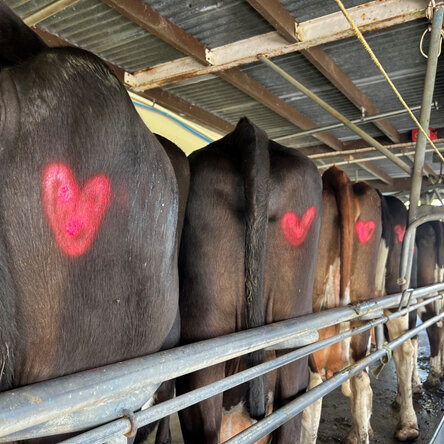Franklin Vets
Franklin Vets - excellence in veterinary care for dairy, farming, lifestyle, equine and household pets. BESTPRACTICE ACCREDITED NZ.

Whenever we use antibiotics, we expose bacteria to antibiotics at a range of concentrations. Over time, bacteria not killed by original treatments become a larger part of the population and pass resistant “genes” to other bacteria. To maintain susceptible populations of bacteria, it is prudent to limit the exposure of bacteria to antibiotics. This doesn’t mean we don’t treat diseased animals with antibiotics when appropriate; it does mean that we reduce the use of antibiotics where they are not, or where more appropriate therapies exist.
What does this mean for antibiotic dry cow therapy? The goals of dry cow therapies are to cure existing infections present in the udder at the end of the lactation; to reduce the incidence of new infections over the dry period, and to reduce the incidence of mastitis in the first month of the following lactation.
Antibiotic dry cow therapy is the most appropriate treatment to cure existing infections in the udder at the end of lactation. However, in a gland free from infection at the end of the lactation, teat sealants are more effective in reducing new infections over longer periods than antibiotic dry cow therapy, and better at reducing dry period infections and cases of mastitis in the following lactation than not providing any therapy at all. Antibiotic dry cow therapy use is appropriate in infected cows and teat sealant use in non-infected cows.
While these principles have been employed over decades and should come as no surprise, recent policy changes that govern how veterinarians are required to authorise antibiotic dry cow therapy have shifted their emphasis from “should” to “must”; and from authorizing at a herd level to authorizing at a cow level. Practices are being audited to assess compliance with national policies on the use of antibiotics.
In other words, farmers will need to provide diagnostic evidence (see article – What constitutes diagnostic evidence that antibiotic DCT is required?) that cows require antibiotic DCT at the end of the season. If the vet determines that blanket antibiotic DCT is appropriate, farmers will be required to implement formal plans to reduce the prevalence of mastitis and therefore the need for blanket antibiotic DCT. Your vet will be able to keep you up to date with your farms’ requirements as the season progresses.
The silver lining in this is the emphasis on reducing the incidence of mastitis in the national herd. This has benefits for the welfare of cows, limiting farm productivity and expenses to deal with a costly and time-consuming disease, as well as ensuring that our treatments remain effective into the future.
Dr David Hawkins BVSc FArm Vet & Consultant